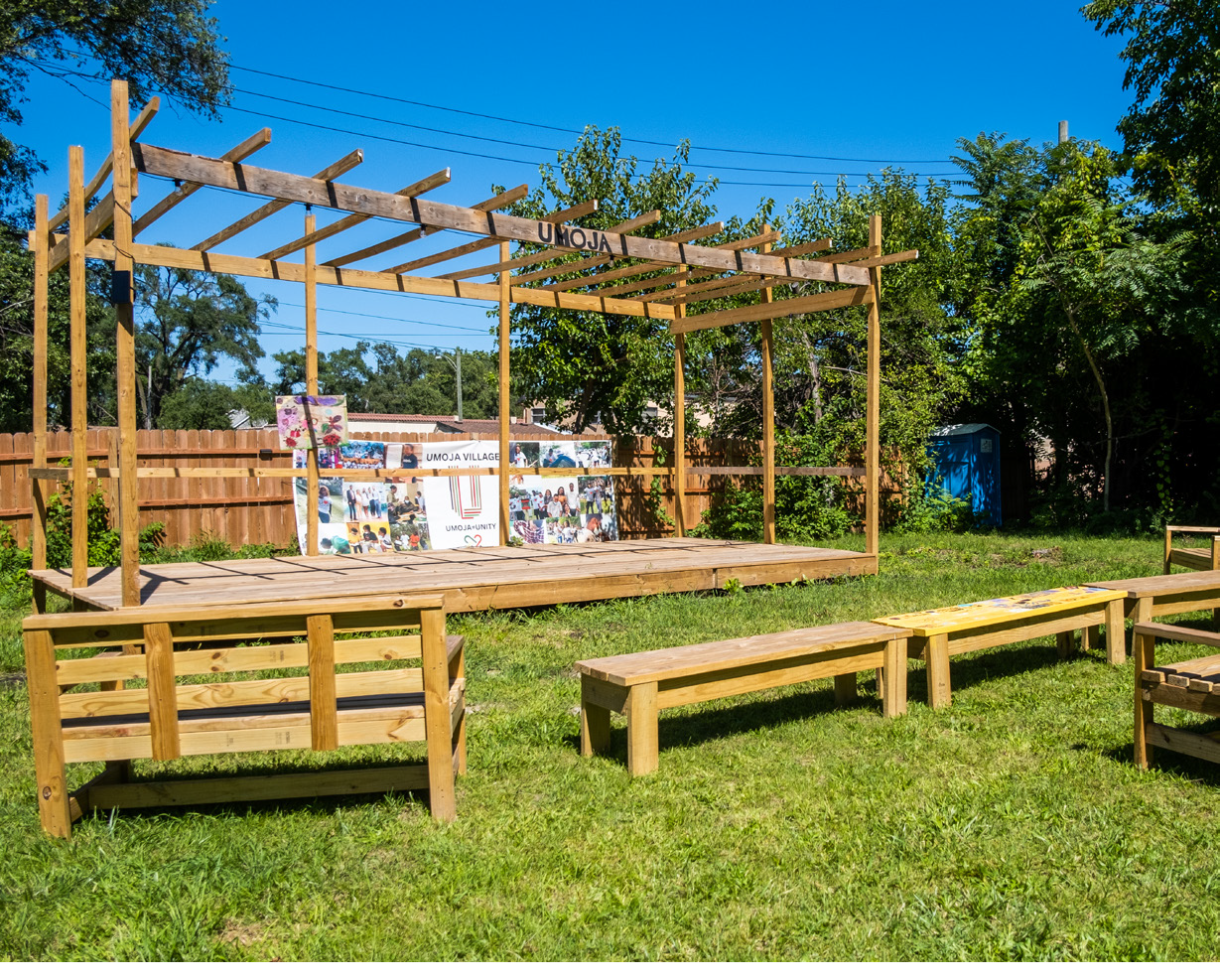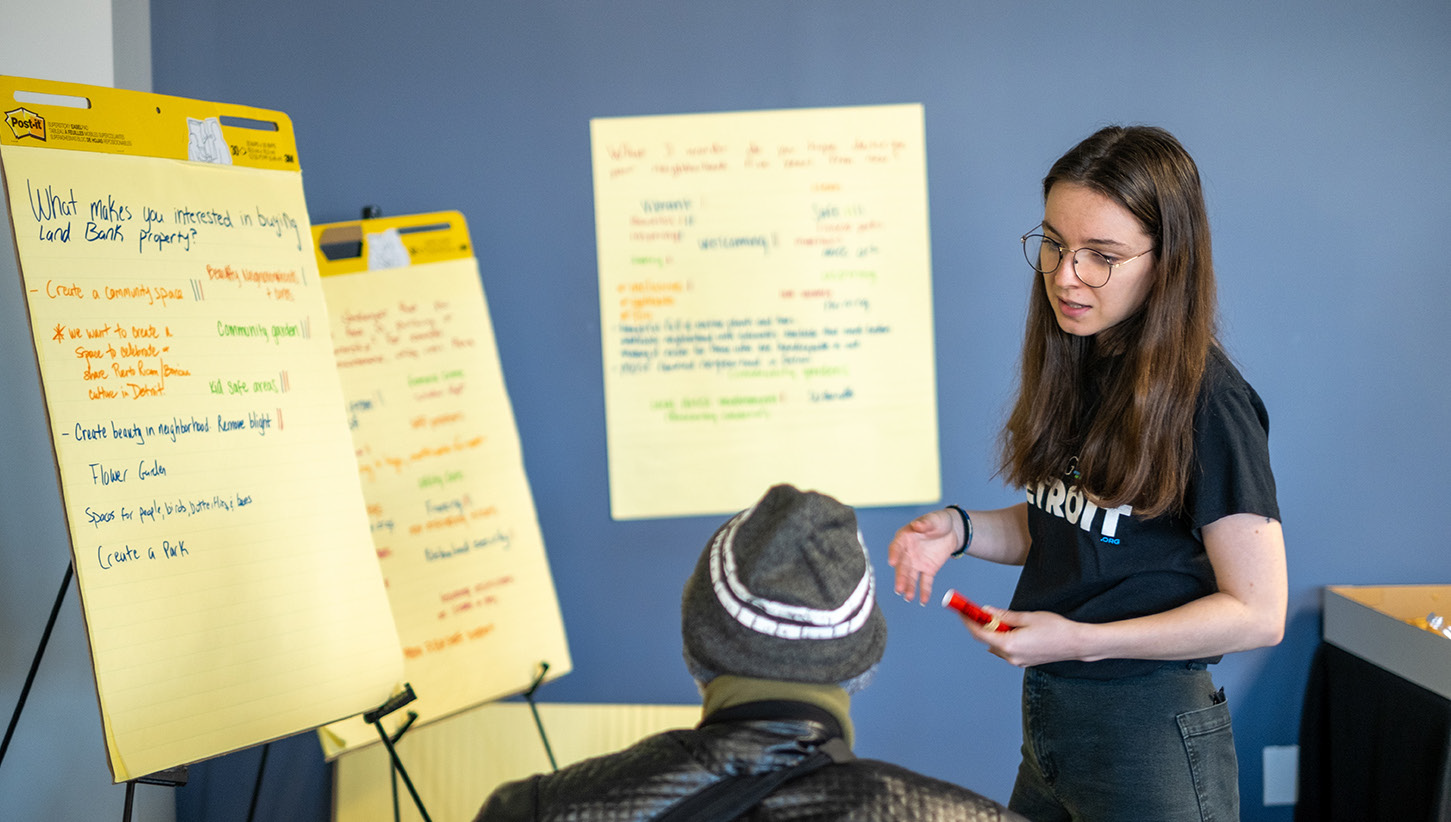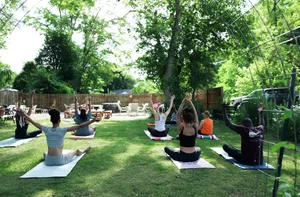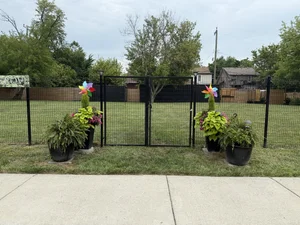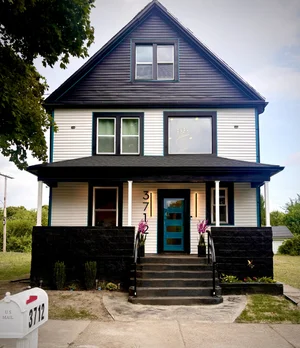Next Five: 2025-2030 Strategic Plan
Building a Stronger Detroit Together
A strategic plan is a critical tool to set organizational direction and priorities, drive alignment, simplify decision making, communicate to partners and stakeholders.
Ten Years of Impact
Why Next Five
Since its founding in 2008, the DLBA has evolved to meet the challenges posed by vacant and abandoned properties in Detroit. The DLBA's role expanded significantly in 2014 when most of Detroit's publicly owned residential property was consolidated into the DLBA's inventory. Ten years later, we are at another pivotal point.
Our Process
Research & Analysis
In conducting our research and analysis, we grounded our approach in both internal data and external benchmarking. We leveraged operational insights, program performance metrics, and inventory data to assess DLBA's current capacity, while looking outward to peer land banks for tested strategies and innovative practices.
Community & Engagement
In gathering community input we focused on broad, meaningful input and collaborating with residents and resident-serving institutions.
For more details on our community engagement process see Appendix C: Planning Process Community Engagement Summaries.
Final Plan
During this phase, we collaborated closely with staff, the Advisory Panel, and other partners to refine the draft plan. Building on the insights from research and analysis, and the community priorities identified through engagement, we drafted the Strategic Plan that will guide DLBA's efforts moving forward.
Community Engagement
Public Surveys
740 Respondents
Winter & Spring 2024
Working Sessions
3 Sessions
36 Topic Experts
Urban Agriculture Practitioners
Focus Groups
Focus Groups 42 Detroiters
5 Focus Groups
Interviews
25 Interviews
City Staff, Local Foundations, Developers, Lending Institutions, Other Land Bank Leaders
C&E Events
60 Events
Department of Neighborhood Resource Fairs, Meetings, DLBA Events
Advisory Panel
14 Members
Local Leaders, City Staff, Neighborhood Revitalization Experts, Other Land Bank Leaders
Next Five Structure
The plan has three strategic themes:
- 1. Strong & Connected Neighborhood Fabric
- 2. Active & Consistent Collaboration
- 3. Sustainable & Dynamic Operations
- 4. Performance & Accountability
Within each theme there are goals.
The plan contains ten goals.
- 1. Create a stronger network of activated open space.
- 2. Bolster quality, attainable housing options.
- 3. Collaborate on improved property maintenance.
- 4. Expand the use of land bank tools to advance economic opportunities.
- 5. Provide excellent service and clear information to our constituents.
- 6. Define and build meaningful, formal partnerships with neighborhood and community organizations.
- 7. Strengthen mutually beneficial relationships across City and County government.
- 8. Advance organizational effectiveness through preservation of institutional knowledge and ongoing evaluation.
- 9. Develop diverse and robust funding to grow strategic programming and sustain long-term operations.
- 10. Ensure staff are supported by and integrated into a strong organizational culture and are equipped to implement strategic priorities.
Within each goal there are associated initiatives and activities.
The plan contains robust and ambitious level of detail.
For more information about the initiatives and activities see the full plan.
Each activity has a priority level ranging from important to essential.
Each activity is given an approximate timeframe to get to complete.
Together, these will be described across the five-year timespan.
While the evaluation plan is being developed, the DLBA will report on the ten metrics identified in the plan, along with metrics it regularly reports like call volume and wait times, property sales, compliance achievements, and community events attended. The ten targets are:
- 1. 90% of DLBA-owned vacant lots available for sale through DLBA programs by 2030.
- 2. 35% of housing units newly occupied in the next five years happen on DLBA property.
- 3. 50% of DLBA-owned properties have a collaborative maintenance strategy by 2030.
- 4. 15% annual increase in the number of commercial and economic development projects the DLBA supports.
- 5. 100% of inquiries resolved within seven business days.
- 6. 25% increase in formalized partnerships with neighborhood and community organizations by 2030.
- 7. 100% of key departments have effective, and maintained, communication mechanisms with DLBA within two years.
- 8. 80% of Next Five activities completed within the implementation timeline.
- 9. 20% annual growth of secondary revenue sources (e.g. grants, fee-for-service, new government funding).
- 10. 80% of employees report they feel equipped to efficiently and effectively do their jobs.
Advisory Panel Members
Alexa Bush
The Kresge Foundation
Chase Cantrell
Building Community Value
Margi Dewar
University of Michigan
Michael Freeman
Genesee County Land Bank Authority
Karen Gage
City of Detroit, Planning & Development Department
Erinn Harris
Department of Neighborhoods
Sarah Hayosh
Detroit Future City
Keegan Mahoney
City of Detroit, Housing & Revitalization Department
Dara O'Byrne
City of Detroit, Planning & Development Department
Madhavi Reddy
Community Development Advocates of Detroit
Tepfirah (Tee) Rushdan
Office of Sustainability, City of Detroit
Sarida Scott
University of Detroit Mercy
Jai Singletary
Office of Council President Pro Tempore
Mike Smith
Invest Detroit
Special Thanks



